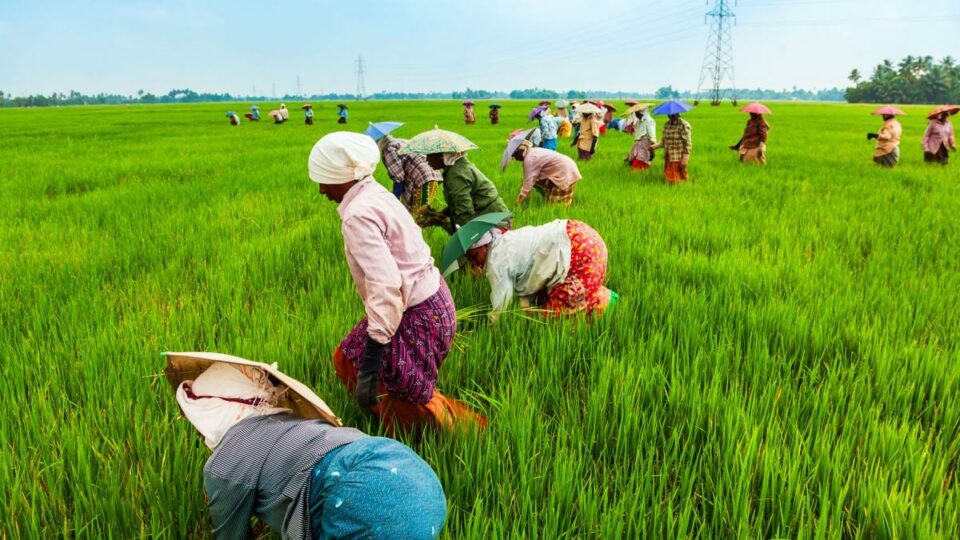The World Bank, in a recent report titled, “Migration and Development Brief 35”, projected $17.6 billion diaspora remittances into Nigeria in 2021, representing a 2.5 per cent increase from $17.2 billion recorded in 2020. The bank attributed the moderate increase in Nigeria’s Diaspora remittances to increasing influence of policies intended to channel inflows through the banking system.
Based on this premise, economic analysts and experts in the agriculture sector posit that channeling a significant amount of the remittances into agricultural-based investments will play a remarkable role in fostering Nigeria’s food security and economic development.
Commenting on the need for Nigerian diasporas to engage in agriculture,David Omololu Duyile,managing director of Riyden farm in Ita Eko,Ogun State, said that the agriculture sector is still largely untapped and presents a lot of opportunities for them to come on board at an early stage and actually build a brand that is not only good for distribution internally but presents a massive market across the global market.
Duyile, who started his agriculture investment in pig farming as a diaspora in the United Kingdom,noted that it is one of the biggest decisions he has ever made as it has provided him with a financial gratification beyond expectation.
He, however, observed that factors such as lack of information about pricing structure,wavering government policies, political and security instability, and poor knowledge about the agricultural terrain has dissuaded many Nigerian diasporas from investing in the agriculture sector. . Someone who wants to invest must have a clear idea of what he wants to do.
To encourage diaspora investment in the agriculture sector, Duyile said intensified efforts by the government in addressing issues such as corruption, a weak legal framework, and enforcement, political instability, and security concerns will make a lot of difference.
Duyile also called for the establishment of Public Private Partnerships (PPPs) aimed at providing awareness and accurate information on areas and agricultural avenues the Nigerian diaspora can leverage and make better decisions concerning business growth.
Emphasising the relevance of diaspora investment in agriculture, Rufus Idris,country director, Heifer International,a global non-profit economic development institution, explained that Nigeria is endowed with a buoyant agriculture sector that could be better harnessed through the formation of workable plans to pull diaspora investors.
Citing a statement by President Muhammadu Buhari which placed Nigeria’s diaspora remittance at an estimated $25 billion which is about 80 percent of Nigeria’s annual budget and about six percent of the country’s gross domestic product (GDP), the Heifer director asserted that the huge amount of remittances from Nigerians in the diaspora can be effectively channelled into growing the country’s livestock production and boosting the agriculture sector.
“That’s a huge amount of money. What we are doing here is trying to see how we collaborate with other organisations that can help us channel diaspora investment into the agricultural sector to address areas where we have problems and such investments can help unlock those areas,” he explained.
According to Idris, Heifer has opened up discussions with the Nigerians in the Diaspora Commission (NiDCOM) with a view to stimulate economic growth by linking diaspora investments to Nigerian agribusinesses.
Highlighting the specific areas of agriculture in which Heifer wants to partner diaspora investors, Idris said the non-profit organisation was looking at different sub-sectors in the value-chain where Nigeria had comparative advantage which includes; the rice value chain, the tomato value chain, poultry value chain, some of the ruminant value chain like cattle as well as other key areas in the sector.
He further noted that Heifer is making efforts to help improve and increase production, productivity and competitiveness and also bring in technology to help scale the impact and contribution within the agricultural sector.
Evaluating opportunities for investment in the agriculture sector , Chinonso Okafor, senior research analyst at Nextier Advisory, a leading public sector advisory firm, remarked that research conducted on the agriculture value chain shows an estimated 15-25 per cent return on investment which is a remarkable potential.
“Agriculture is beyond farming,cultivation of crops but a business that covers a wide range of value chains and wealth creation opportunities,” he noted.
Speaking on one of the agricultural sectors worth investment, he noted that there is a big market in the leather business value chain, adding that its numerous value chains offer diverse business opportunities that Nigerian diasporas can tap into.
To promote Nigeria diaspora investment in agriculture, Okafor asserted that there must be an investment vehicle run by fund managers that understand the dynamics of the business such as the interest rates,competing interest rates, returns,duration of investment and other managerial factors so as to boost investors’ confidence.
He also said the Nigerians in Diaspora Commission (NIDCOM) needs to establish partnerships with international organisations, the Central Bank of Nigeria, as well as other relevant government/private agencies, towards creating technical or financial support that would persuade diasporas to invest in the agriculture sector.


